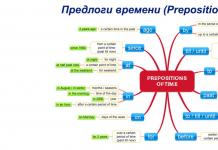The consumer has long been accustomed to the fact that in every store he is offered discounts and promotions that help save money. This fully applies to real life, when property owners are trying to reduce costs when choosing a heating system. This can be said about heating equipment, including
Despite the fact that network units are “gluttonous”, and their work is accompanied by high electricity bills, on sale today you can find very economical equipment that will have a high level. Such devices will be discussed below. The article will consider several models, one of which you can choose for heating your house or apartment.
Features of the boiler brand "Evan EPO-9.45 / 220V"
When choosing economical electric boilers, you can pay attention to the model that was mentioned in the subheading above. This equipment allows the consumer to save even at the stage of purchase. You will have to pay only 13,900 rubles for the device.
It is designed for space heating, the area of which does not exceed 95 m 2 . You can use the device as a main or backup source of heating. The model has a container for heating water, where the flange with heating elements is located. The unit does not depend on external factors, it is easy to maintain and install. When the temperature is adjusted, the power remains unchanged.

Looking at economical electric boilers in the store, you can pay attention to the above model, whose power is only 9.45 kW. The dimensions of the device are 565 x 270 x 220 mm. With the help of this equipment, it will be possible to achieve a heating temperature of 85 ° C. The unit weighs only 15 kg and does not take up much space. The working pressure is 30 bar. The manufacturer claims that the equipment allows you to save money, because it belongs to the "standard-economy" series.
Positive features of EPO-9.45/220V

Economical electric boilers have many advantages over more powerful equipment. For example, they are easy to operate, because they have a control panel. This makes the device safe and easy to use. The boiler body is durable, because in the factory it is coated with a composition that prevents the formation of corrosion and provides protection for the components, as well as a long service life of the unit itself. Such economical electric boilers can be used without making additional expenses. After all, you do not have to clean the chimney, as well as unload and load fuel.
Installation and maintenance are not accompanied by difficulties: the chimney does not have to be installed, as well as the coal bunker, as well as the fuel tank. During operation, the device is silent and environmentally friendly. Its work does not depend on external factors, and the functioning will be carried out automatically. There is no need for constant monitoring, as well as in the boiler room.
Description of the boiler brand Kospel EKCO.R1 18

This equipment is somewhat more expensive compared to the above. Its price is 37,900 rubles. However, the power is much greater, it is equal to 18 kW, which allows you to install equipment in houses with a total area of 180 m 2. The equipment is controlled by means of a room regulator, on which it is possible to set the temperature level in the room. A long service life is achieved due to the fact that the existing heaters work alternately, so they are not fully loaded.
Model specifications

You can choose the one described above for heating a private house, the prices for this equipment are acceptable. If we are talking about the Kospel EKCO.R1 18 model, then the cost is slightly higher, but the power is not so high. Equipment dimensions are 660 x 380 x 175 mm. The heating temperature can reach 85 ° C. The device weighs not so much, the mass is 18 kg. This equipment is powered by a voltage of 380 V. The operating pressure is 3 bar.
The main advantages and features of the model

Today, more and more consumers are purchasing an electric boiler for heating a private house. The prices for such equipment are reasonable. Such devices are discussed in the article. But if we consider the EKCO.R1 18 model in more detail, then we can say about it that it is distinguished by reliability, comfortable control and safety. The first factor is confirmed by the fact that the power unit consists of electronic semiconductor switching elements, which ensures silent and reliable operation. If the mark of the permissible pressure in the heating system is exceeded, the safety valve will work, so you can not worry about the safety of the equipment.
It is very convenient to control the boiler, the whole set is complemented by a regulator, with which you can set a certain temperature regime inside the premises. This economical electric heating boiler is designed to be connected to heating systems. The kit is completed with a circulation pump, a pressure gauge and a safety group. For even greater savings, you can reduce the power of the equipment by 2/3 of the nominal, while you will achieve a reduction in electricity consumption. Voltage fluctuations during equipment operation are excluded, because power is pumped as smoothly as possible. The heating block and heating elements are made of high-quality stainless steel, which prolongs the life of the equipment.
Description of the economical boiler brand Protherm "Skat 18KR"

Considering the most economical electric boilers, you should pay attention to the Skat 18KR model, for which you will have to pay 40,200 rubles. This equipment is double-circuit, it is used for home heating and water heating.
The unit is well protected against pump jamming and freezing. The equipment can operate from a 380 V network. It is possible to connect several boilers at once to create a single system. To ensure the safety of operation, the equipment is equipped with a protective pump against jamming of the fuse and for protection against overheating. The power stays the same as the temperature is adjusted. Power is regulated smoothly, there is a mechanism for protection against pressure drops.
Model specifications
Economical electric boilers for a private house are usually intended for space heating, the total area of \u200b\u200bwhich is not so large. This can be said about the model described above, whose power is 18 kW. Equipment dimensions are 310 x 410 x 740 mm. The device weighs 34 kg, the volume of the expansion tank is 10 liters. The working pressure is 3 bar.
Description of the boiler brand "Evan Warmos IV-7.5 / 220"
An economical electric boiler with high efficiency should not be very expensive. This can be said about the model mentioned in the subtitle. You will have to pay only 18,700 rubles for it. The equipment is a boiler for stationary installation and operation in everyday life. The device can be installed in a room with natural ventilation without exposure to precipitation, as well as moisture. Water or non-freezing liquids can act as a heat carrier.
The boiler has an electronic temperature control system and a temperature sensor, which indicates that the equipment can work automatically. Thanks to this, an independent choice of power level occurs and an optimal power consumption mode is ensured. However, the equipment retains the ability to manually limit power. Such economical electric boilers for 220 volts are designed for heating a house with an area of 70 m 2. The power is 7.5 kW, and the temperature of the liquid in the circuit reaches 85 ° C. The device weighs only 26 kg, and its dimensions are 595 x 373 x 232 mm.
Recently, electric heating for country and private houses has become more and more popular. After all, not everyone has the opportunity to connect to the gas main. An advantageous equipment for electric heating is an electric boiler. There are many models on the market from different manufacturers, which differ in configuration and power. In our article, we will consider which electric boilers are the most economical.
Which boiler is the most economical
The most important question during the onset of cold weather is how to heat a private house. Not in all regions it is possible to connect to the central heating system, so this problem concerns many. It is not always possible to connect gas heating, which is economical. The only option for heating a country house is electric heating. Manufacturers produce a large number of electrical equipment for heating private houses. But not all of them are economical and affordable.
Many people prefer electric boilers for heating. Such equipment can be installed in any room, it is small in size and does not take up much space. And also boilers will not spoil the appearance of your home. Installing such equipment yourself is not difficult. And also the electric boiler is easy to use.
There are several types of electric boilers, which differ in power. To heat a country house on weekends, it is enough to purchase a boiler with low power, which will be inexpensive. If you want to heat a large country house throughout the winter, it is better to choose more powerful equipment, but the price for it will be an order of magnitude higher.
Features of electric boilers
The lower the energy consumption, the faster the boiler will heat up.
In order to determine what is more profitable for electric boilers or other heating devices, it is necessary to find out the efficiency of the equipment. Then you can understand how the process of converting electricity into heat takes place and how effective it is.
In almost all electric boilers, manufacturers indicate an efficiency of 95 to 98%. But in most cases, this figure is much lower. Therefore, you should not trust such data.
An electric boiler works with electricity and converts it into heat. For such boilers, it is not necessary to arrange a separate room; they can be located in any place convenient for you. What can not be said about gas and solid fuel boilers. This is another reason why electric boilers are more profitable than others.
Electric boilers are divided into three types and, based on their characteristics, you can choose the most suitable option for you. If you have enough space in your house, then you can purchase a floor-standing electric boiler that has high power.
And also electric boilers are often used not only for heating the house, but also for heating and supplying hot water.
Advantages of heating boilers for the home
There are many advantages of electric boilers for a private house:
- Heating electric boilers are installed quickly and easily. In operation, they do not create any problems.
- Such equipment works without noise.
- Electric boilers have a temperature control function. Therefore, you can independently control the temperature in the room that you need.
- No need to think about buying fuel, its delivery and storage.
- Electric boilers are environmentally friendly equipment. They do not emit any harmful impurities and combustion products. Unlike gas boilers, gas leakage is impossible. Therefore, they are safe and do not pose any harm to the health of residents.
- Do not harm the environment.
Several types of electric boilers are made: electrode, induction and heating elements boilers.
Let's consider each type in more detail:
1. The electrode boiler is considered the most economical type of electric boiler. Unlike heating boilers, they are able to save 40% more electricity. The main advantages of such boilers are: compact size, no scale and water heating in a few minutes.

2. An induction boiler compares favorably with others in that it does not require the purchase of a special coolant. These boilers have a thermal barrier, so they have high power. Induction boilers do not come into contact with the coolant. This is one of the advantages of such equipment, because the service life in this case increases. There is no contact due to the fuel element, which is applied to the surface of the tank.

3. Heating boiler. In such equipment, the coolant is heated using heating elements built into the tank. Ten is a tubular heating component. The disadvantage of a heating element boiler: the formation of scale on heating elements. They need to be cleaned periodically. Otherwise, the boiler may fail. And the advantages include: the absence of contact between water and the element that generates heat. This means that current leakage is almost impossible.

In addition to this classification, electric boilers are divided into several categories:
- Single circuit and double circuit.
- Wall and floor type.
- Single phase and three phase.
Wall-mounted boilers are small in size and have low power. They are usually used in small country houses. They warm up a room with an area of \u200b\u200bnot more than 25m2 well.
But there are also types of wall-mounted boilers that have high power. They are used for heating large rooms. Such boilers can heat a building with an area of up to 600m2.
Connect the electric boiler to a regular network. Water or non-freezing liquid can be used as a heat carrier.
The equipment market is replete with a large number of such heating devices. When choosing an electric boiler, an uninitiated user will easily get confused in differing indicators and technical characteristics.
We will tell you how to choose an electric boiler when heating with an electric boiler is justified, how to calculate the power, reduce heating bills.
Advantages of electric boilers
- Simple design, minimal heat loss and the highest efficiency in the heating season - up to 99.5%.
- There is no need to install in a separate room at home or cottage.
- Electricity, as an energy carrier, does not need to be delivered or stored, which cannot be said about gas or coal.
- Electric heating boilers are safe: if water leaks, the circuit will open, the electric boiler will turn off.
- Environmentally friendly, no chimney is needed, since no harmful substances and decay products are emitted during operation.
In the absence of hot water supply, you can choose a double-circuit heating boiler, which is also used as a heating boiler, which is especially important for a summer residence or a private house. The consumer will have hot water around the clock.
TOP 3 best electric boilers for heating
- Protherm Skat 9 KR 13
- EVAN EXPERT 9
- MORA-TOP Electra Comfort 15K
Calculation of the power of the electric boiler - the main indicator of choice
Let's deal with the most important characteristics of electric boilers. Power is the main one, its choice depends not only on the heating area, but also on the presence of an insulating layer and insulation, wall material, and the quality of other building materials.
Power is provided by a heating element, an electrode or an inductor (depending on the type of boiler). It is defined in kilowatts (kW) and ranges from 2 to 60 kW.

Sales consultants use a fairly simple formula for calculating the power of an electric boiler, based on 1 kW of electric boiler power for every 10 square meters. m of premises. Let's say we have a private house with an area of 100 square meters. m, for heating such an area we will need an electric boiler from 10 kW.
Consider the heat loss of your home. If the house is not sufficiently insulated, there are bad windows, the power of the electric boiler should be chosen more than recommended for your area.
The performance of the heater is taken into account when calculating the heat engineering of a private house, as well as when calculating the power of hot water supply. This will allow you to choose an average value in order to compensate for the loss of heat.
Detailed calculation of the power of the electric boiler
The power for heating a private house, summer house or apartment with a heating appliance is equal to the heat power. To calculate it, they are guided by a few simple rules:
- for heating 1 cu. m. at home or cottages will need about 40 watts of power;
- for each of the windows it is necessary to add 100 W, for the door - another 200;
- these data are averaged and depend on climatic conditions: residents of the Far Eastern and Siberian regions multiply the final number by 1.5–2, the coefficient in the middle regions of the Russian Federation is 1.2, and the southern regions use a coefficient of 0.7–0.9;
- for a house or a summer residence, the result of the calculation is multiplied by another 1.5, which is associated with heat losses due to the design of the roof and floor surface (especially in the absence of a basement).

Let's give an example for a house in the south of the country, with an area of 80 square meters. m., with a ceiling height of 3 m, six window openings, one front door. The area of the house is 80 sq. m. must be multiplied by 40 W, then multiplied by 3 (ceiling height indicator), add 200 and 600 W (door and windows). We multiply the resulting value by the private house and regional coefficient - 0.7 and 1.5. As a result, we get 10920 watts.
Installation Features
A wall-mounted electric boiler for low-power heating (for example, the Mini or Economy series) has a single-phase voltage of 220 V. For devices with a voltage of 380 V, a three-phase voltage is required.
For a conventional household outlet, you can choose a low-power wall-mounted heater of the Economy or Mini class, which consumes no more than 3.5 kW. The limiting power is calculated as follows: 16 A - current strength in home sockets. With an average voltage of 220 V, we get the maximum power - 3520 W (220x16).

Despite the fact that the technical characteristics of mini or economy boilers up to 12 kW allow connection to a single-phase power line, experts recommend connecting models from 6 kW to a 380 W power line.
Before installing a wall-mounted electric boiler, a cable with a recommended cross section of 1 mm and a design load of 8 A is run from the shield. Floor-standing boilers are more productive, owners of houses with a large area should choose this particular type of boiler.
Types of electric boilers
Depending on the class, purpose and performance, electric heating boilers are:
- floor and wall: the second device is more compact, which does not affect its performance;
- single-phase (220 V) and three-phase (380 V): this figure depends on the area of the room;
- single-circuit and double-circuit: the first will provide heating for a private house, the second - also the presence of hot water in the tap;
- TENovye, induction and electrode.
Boiler TENOVY
The most common type. The wall-mounted apparatus is a tank in which several heating elements are placed. The choice of this mini-boiler is optimal for an apartment or house, because it is economical due to the multi-stage control mechanism, and easy to maintain. Economy models are the cheapest compared to induction and electrode ones. They are also used in conjunction with water heaters. The wall-mounted boiler has manual and automatic modes. Selecting the latter sets the desired temperature at night. The disadvantage of heating elements is the appearance of scale, which reduces productivity if not dealt with.
Often, a wall-mounted mini-boiler has a circulation pump to stimulate the movement of the coolant. In modern models, instead of water, the use of antifreeze is acceptable.
Induction boiler
It consists of a small dielectric tube and a ferromagnetic rod. The coolant moves through the tube. The passing electric current heats the rod, which increases the temperature of the coolant. Many make a choice in favor of such heaters, because they are durable, compact and economical: thanks to the “soft start” function, they consume 2 times less electricity than electric heaters. Their weak point is a complex control unit.
Electrode boiler
The so-called "direct action" unit, since there is no heating element. Heats due to the flow of alternating electric current through the coolant with a frequency of 50 oscillations / second. Heating is carried out due to the rapid movement of water ions. Such an electric boiler is safe, since in the event of a system leak, it will automatically turn off.

The disadvantages include an increased requirement for water, which must have the necessary resistance. It is also necessary to periodically replace the electrodes, they dissolve over time. To avoid the risk of electric shock, heating with an electrode unit is possible only if there is a good grounding.
What should be considered when choosing and installing an electric boiler?
To determine which electric boiler is better to choose, you need to consider the following factors:
- the estimated heating area of the house, cottage, apartment;
- type of room;
- weight and dimensions of the device;
- operational period;
- economy indicator;
- price limit.
Mounting method
Depending on the installation method, you can choose:
- electric boiler with a lower location of pipes (inlet and outlet);
- electric boiler with a lower inlet pipe, an upper outlet pipe.

Wall mini-boiler
An economy-class wall-mounted mini-boiler will perfectly heat the room if the following nuances are also taken into account when installing it:
- The meter can affect the consumption of electricity. It is advantageous to choose a multi-tariff electric meter that takes into account the operation of the unit at night.
- A pump shutdown delay program is useful.
- Having made a choice in favor of a built-in circulation pump, you can further increase the efficiency of the equipment by several percent. It increases the speed of water movement in the system, heating a private house or apartment is faster.
- The efficiency of an electrical appliance can be increased by using pipes of a smaller diameter. The water heating time will decrease, therefore, the energy costs will decrease.
- The performance of the equipment also depends on the type of control. For a private house, it is beneficial to take an economy-class wall-mounted appliance with an automatic control panel, since automation increases efficiency by 1/4.
But since mechanical control is considered more reliable, mechanically controlled boilers are the most optimal for long-term heating of large areas.
Rating of electric heating boilers - choosing the best company
The most popular manufacturers of electric boilers:
- Protherm
- Vaillant
- Kospel
- Evberg
- Dakon

Domestic firms RusNit and EVAN are also popular.
Electric heating boilers - reviews
Alexander (Moscow)
The boiler was advised by a friend, so I took already proven equipment. Has been working flawlessly for 2 years now. I don’t advise buying without a PROTHERM THERMOLINK S regulator, after installation, my savings became noticeable, the advantages of this boiler increased.
Advantages: Not big. Fits well in the room
Flaws: A little noise during operation, which is not always audible

Marina (Rostov-on-Don)
Heating boiler Protherm Skat 24K
It is a pity that domestic manufacturers do not make such quality! Bought and forgot!
Advantages: Proterm uses high quality copper heating elements. Soft start system - the electric body does not turn on immediately at maximum power, but with a delay, which prolongs the service life. High quality stainless steel heat exchangers. The ability to use not all heating elements for heating. The presence of a built-in circulation pump, while it is almost inaudible.
Flaws: EXPENSIVE! You have to pay for quality. Production in the Czech Republic and Slovakia - hence the price! A voltage stabilizer is required, otherwise you can forget about the warranty.
Space heating in the cold season is an important moment in creating comfort and coziness in your own home. Depending on the technical and financial capabilities, the owner of the property tries to choose the best option for thermal equipment. A properly selected electric boiler for heating will effectively heat the premises and minimize energy costs.
The advantage of operating electric boilers for heating
An electric boiler for heating is purchased mainly for combined heat generation or in regions where there is no technical possibility of supplying gas. Heating with electricity implies a significant consumption of electricity and material costs. Electric boilers have characteristics that should be taken into account.

Advantages of electric heating:
- Permits are not required for installation;
- Compact design, does not require a separate room;
- Safety of operation, in comparison with gas equipment;
- No noise during operation;
- Easy to install;
- Affordable price.
The main disadvantage is the high cost of energy consumption. The disadvantages include the lack of technical capabilities to connect the boiler with the required power. In some regions, partial power outages are possible, then the owners are deprived of light and heat.
Types and power of electric boilers for heating a private house
There are many indicators that you need to focus on when choosing an electric boiler. One of the main indicators is the power of the heating source. To calculate, you need to know the area of the heated building.
The average indicator is the calculation for 10 m 2 - 1 kW of power.
For example, for a one-story house with an area of 100m 2, a 10 kW unit is needed, which will provide high-quality heating of the entire circuit. A lower power electric boiler is suitable for heating individual rooms or a small house. Equipment with low power is connected to a single-phase voltage of 220V. For more powerful devices (from 6 kW), a three-phase voltage of 380 V is required.
What are the boilers - division according to several criteria:
- According to the method of water heating: TEN, electrode, induction;
- Powers: 220V, 380V mixed type;
- Installation options: floor, wall;
- Additional features.
There are also single-circuit and double-circuit equipment. The first option works only for heating a private house. A double-circuit boiler can serve both for heating and for using hot water for domestic needs. The purchase of an additional boiler for heating water becomes an irrelevant problem. The cost of this equipment is somewhat higher, but in the process of operation it fully justifies the costs of flawless work in the heating system and hot water treatment.
Heating elements and induction electric boilers for the home
Heating a house with heating elements is a classic. The device is a tank with tubular electric heaters placed in it. The power of each heating element is about 2 kW. This device is quite economical due to the step control and easy to maintain. Heating elements are easily removed if element replacement or repair is required.

Advantages of heating element structures:
- Low cost of equipment;
- Relative energy savings;
- Ease of use;
- Average service life.
The disadvantages include the appearance of scale, which interferes with high-quality performance. It covers the tubes, circuit and batteries, which helps to reduce heat transfer. Many cottage owners prefer induction boilers. They are durable and consume 2 times less electricity than TEN models.
An induction boiler consists of 3 main elements: a body, a heat-insulating layer, and a core.
The principle of operation is based on magnetic inertia. An induction coil is installed above the apparatus system, which generates heat with the help of current. The advantages of an induction boiler are the ability to use both water and another coolant, durability of operation, no scale formation, fast heating speed, safety. The induction unit is quite heavy, so it is installed on the floor. Models of this series are significantly higher in price than TEN boilers.
How to choose an electric boiler for heating a private house: electrode models
Electrode or ion boilers work due to electrodes (anode and cathode), which are the main heating element. Water is used as a heat carrier. Heating occurs due to the rapid movement of ions that release heat.
Advantages of electrode boilers:
- Fast heating of the circuit and radiators with high efficiency;
- Small size of the device;
- Simplicity of design;
- Lack of scale;
- Optimal control during operation;
- Withstands voltage fluctuations.

When choosing an electrode boiler, it should be taken into account that the coolant must have good conductivity, which must be monitored in a timely manner. A conventional anti-freeze liquid is not suitable for such a system. You need to buy a special one, the cost of which is quite high.
The electrode boiler must be grounded for safety reasons.
It will also be necessary to periodically change the electrodes, which will dissolve over time. The temperature of the coolant should not be higher than 75 ᵒС, as there is an increase in electricity consumption. Power increases by 25% when using double-circuit devices. To regulate the temperature, it will be necessary to install additional equipment.
Which electric boiler to choose the most economical for the home without damaging the wallet
For a large country house, it is best to choose an induction type boiler. It is the most economical in comparison with heating elements and electrode models, at least by 25%. Long-term operation on any type of coolant is a clear advantage. However, not everyone can afford the initial purchase of equipment.
If the area of \u200b\u200bthe house is not large, you can pick up heating elements or electrode boilers.
They are affordable, and by automating control, energy is saved. Moreover, the efficiency of all electric boilers is almost the same. Some models lose some efficiency during operation. You should be prepared to replace the electrodes and heating elements, over time, the expected wear of the elements comes.
To find the best option, you must adhere to the following rules:
- The power of the boiler must correspond to the heated area, experts will help to calculate it;
- The device must be secure;
- Fit into interior design;
- Complete noiselessness and absence of vibration;
- The boiler must have maximum efficiency;
- Models should be chosen with additional automation that will control the heating of the coolant;
- Fast heating speed, can save further energy consumption;
- A mandatory point is a quality certificate and a manufacturer's warranty period.

When connecting electric heating, experts recommend installing meters with different tariffs. You can save on daytime power consumption, and increase power consumption at night.
Rating of electric boilers for heating a private house: three leading manufacturers
Among the wide selection of electric boilers, there is a rating of the most popular manufacturers producing decent units.
Compact, reliable and easy-to-manage electric heating boilers, of course, are inferior to their counterparts in terms of efficiency, but under certain conditions they will be indispensable. They can be used everywhere, installed in apartments and private houses, offices and industrial premises - wherever there is access to electricity. Often electric boilers are used as a backup source of heating. Numerous advantages of such units have led to an increase in their popularity and the emergence of a mass of modifications. Let's try to figure out which electric heating boiler is better to choose for a private house and apartment, what power is needed to create comfortable conditions, and what is important to pay attention to when buying.
No. 1. Advantages and disadvantages
An electric heating boiler works extremely simply. It converts electrical energy into heat. The heating elements, when the boiler is turned on, heat the coolant. The latter enters the dwelling and heats the air in it. In the simplest and most common version, the usual heating element is used as a heating element, but there are also induction and electrode boilers in which heating is carried out in a slightly different way. Only the source of power remains unchanged - electricity. Many models of boilers are equipped with a control and management mechanism. 
Despite the fact that electric boilers can hardly be called an economical source of heat, they are very popular, and there are many reasons for this. To the advantages of electric heating boilers can be attributed:
- versatility. The unit can be installed wherever there is electricity, no permits from the technical supervision authorities are needed. Today, electric boilers are used both in and in apartments, as well as in commercial and industrial premises;
- low cost in comparison with and ;
- high efficiency, which reaches 95-99%;
- ease of installation. Electric boilers have small dimensions, and when they are connected there is no need to build;
- easy operation and temperature adjustment. Most models are equipped convenient control systems and thermostats, so the user should literally press a few buttons or turn the lever - constantly run to the boiler, control its operation, or, worse, do not have to. Since the boiler perfectly controls its work, its efficiency increases;
- safety. There are no open flames in electric boilers, and flammable fuels are not used. Plus, well-thought-out automation is used, so the likelihood of emergency situations compared to other types of boilers is sharply reduced, if, of course, the installation was carried out correctly;
- compactness, so the installation of such a unit is possible even in the smallest rooms;
- environmental friendliness, because during the operation of the boiler no harmful emissions are formed;
- noiselessness;
- no need for constant monitoring of work (you can leave the boiler unattended) and frequent maintenance. Solid fuel boilers, for example, require constant maintenance and cleaning;
- a wide range of. There are models on the market with different power (from 2 to 60 kW or more) and functionality (single-circuit and double-circuit).


Flaws also have:
- high operating cost. Despite advanced automation and energy saving systems, electric boilers are still quite expensive to operate. For heating large rooms, in most cases, it is unprofitable to use them. Often such boilers are used as backup heat source;
- dependence on the availability of electricity. If observed in the region, then this heating option is not suitable;
- the need for special three-phase wiring if a boiler with a power of more than 12 kW is used. Some experts recommend using a three-phase line even when connecting a boiler from 6-7 kW.
Despite the existing disadvantages, electric boilers find their customers. Moreover, if you carefully analyze the conditions at the site where you want to create a heating system, and choose the right electric boiler, you can enjoy the positive qualities of these devices to the maximum. 

No. 2. Types of electric boilers by type of heating element
Depending on how the water is heated, all boilers are divided into heating elements, electrode and induction.
Heating elements boilers
it most popular version, and so popular that when talking about electric boilers, as a rule, they mean exactly the designs with a heating element. Such a unit works on the principle of a boiler. Electricity is supplied to a tubular electric heater (TEH), it heats up and transfers heat to water, which is used as a heat carrier. TEN consists of nichrome helix and durable shell made of steel, aluminum or titanium. The space between the spiral and the shell is filled with quartz sand or other dielectric filler.
The rated power in such boilers is reached abruptly, approximately 10-15 minutes after switching on. TENovye coppers work in the flow mode, can be single-circuit and double-circuit. As a rule, several heating elements are placed in the boiler tank. 

Since there is no direct contact of the heating coil with water (the dielectric plays the role of a separator), you can not be afraid of a short circuit. The main problem of such boilers lies elsewhere. The surface of the heating element is in contact with water, it appears relatively quickly scale, which can gradually disable the boiler. To slow down this process or even avoid it completely, it is better to use distilled water in the system. Special fluids are also sometimes used. The boilers are protected from overheating of the coolant by a thermal regulator, but if a leak occurs, the unit risks overheating and failing. 

Electrode (ion) boilers
The design of this boiler assumes the presence of two electrodes immersed in a heat exchanger. Electric energy is supplied to them, due to which a potential difference is created. Due to the presence of salts in the coolant, it turns into a current conductor. Electricity, passing through an electrolyte with high resistance, causes it to heat up. Just a couple of minutes is enough for the boiler to reach its nominal power. As an electrolyte (coolant) take specially prepared water or ethylene glycol based fluid.
In operation, boilers of this type are enough economical, and to provide the same thermal power as a heating element boiler, they consume almost half as much electricity. Such units, as a rule, have reliable well-thought-out automation, rarely fail, since there is, in fact, nothing to break here. If a leak occurs in the system, then overheating will not happen - there is no electrolyte. Electrode boilers also show themselves well in conditions of unstable voltage. If it drops down to 180 V, the unit will continue to operate and generate heat.
Of the minuses only cost of equipment and the need to use a specially prepared coolant. How much energy the boiler will spend on heating will depend on its composition. Another nuance is the need for reliable grounding. The electrodes will need to be changed periodically. 

induction boiler
Boilers of this type began to be used as early as the 80s of the last century, but at first they were installed only in production. The production of household models began only by the end of the 90s. Their principle of operation is quite complex and resembles a transformer. The heart of the unit is an induction coil, which converts electrical energy into a magnetic field, directing it to the core. The latter is a system of steel pipes with a coolant inside. 

The system performed well. Induction boilers economical and very compact, durable(service life of 30 years or more) and fireproof, and the problem of scale with them is not terrible. There are no strict requirements for the coolant, as in the two previous types of boilers - even refined petroleum products can be poured.
The main downside is high price. In addition, induction boilers weigh decently, despite their miniature dimensions. Find a model lighter than 20 kg will not work.
Which boiler is better to choose depends on the budget and the requirements put forward - all three types can be found on sale. 

Number 3. Connection type
Before buying a boiler of a certain capacity, you need to find out the features. Among boilers with a power of up to 10-12 kW, you can find models that can be connected both to single-phase(220 V), and to three-phase networks (380 V). More powerful boilers with a single-phase network cannot be used - it will be necessary to connect the house to a three-phase network.
To connect the boiler to the shield, it is better to take a stranded copper wire, which, with a higher conductivity, will heat up less. 

No. 4. Number of circuits
Among electric boilers, the most popular are single-loop models. They are only responsible for the heating system. To provide yourself with hot water, you need to retrofit the system with a water heater or take double-circuit boiler. The latter has two independent circuits for heating water. Double-circuit electric boilers consume a lot of electricity, so they are rarely used. 

No. 5. Calculation of the power of an electric boiler
The power of electric boilers ranges from 2 to 60 kW (there are even models for 400 kW for production and commercial premises) and is selected depending on what area of the room needs to be heated, and whether there is a need to heat water for hot water supply. Ideally, to determine the power, it is necessary to carry out a complete heat engineering calculation, taking into account not only the area of \u200b\u200bthe room, but also the height of the ceilings, level, quantity and other factors. For this, it is better to turn to professionals, but calculate approximate power you can do it yourself.
The easiest way is to use the proportion according to which it is necessary to provide 1 kW of boiler power for every 10 m 2 of area, subject to sufficient thermal insulation and with a ceiling height of no more than 3 m. It is better to add a little more margin (10-15%), and if you use a double-circuit boiler , then add another 25% to the resulting value. This calculation is rather conditional, and to obtain more accurate results, you can use another, slightly more complex formula. 

- W \u003d (40 * S * h + Qo+Qd)*k, where
- 40 - the average required power of the boiler per 1 m 3, 40 W / m 3;
- S is the area of the house/apartment;
- h - ceiling height;
- Qo - heat loss through windows, 100 W for each;
- Qd - heat loss through the doors, 200 W for each;
- k is a coefficient depending on the region; for the southern regions of the country, 0.7-0.9 can be taken, for the central and European parts - 1.2-1.4, for the north and far east - 1.8-2.0.
If the calculation is for private house, the result is multiplied by another 1.5.
Suppose there is a house with an area of 85 m 2, a ceiling height of 2.8 m, with 6 windows and 2 doors, it is located in the southern part of the country. The required power will be equal to W \u003d (40 * 85 * 2.8 + 600 + 400) * 0.8 * 1.5 \u003d 12.6 kW. 

No. 6. Power regulation and boiler control system
In electric boilers, it is quite simple to regulate the power and temperature of the coolant. Actually, these two parameters are interrelated, so it is impossible to consider them separately from each other.
The boiler power is adjusted in one of the following ways:
- stepwise- a frequent option in heating elements boilers. In this case, the design provides one heating element, which provides half the power, and two, which give 25% heating each. It turns out that the boiler can operate at 25, 50, 75 and 100% of the maximum power, more precise adjustment can be made in each room thanks to the valves on;
- smooth adjustment achieved through the use of a rheostat. This is a privilege of more expensive models. In simple low-power boilers, there may be no adjustment at all.
The user sets the required temperature of the coolant to the boiler to maintain comfortable conditions in the house, and the boiler turns on the heating and turns it off when the coolant has warmed up enough. Automation can work with the help of mechanical and electronic thermostats. Both options allow you to save energy and maintain a comfortable temperature without constant monitoring of the boiler.
Mechanical thermostat blocks the current of the heat carrier or opens the electrical network when the temperature of the heat carrier set by the user is reached. When the temperature drops, the boiler turns on again. This is a simple and cheap method, but not the most accurate - the temperature of the coolant at the outlet of the boiler may differ by 2-3 0 С from the set one. Electronic thermostats more accurate, they consist of a remote sensor and a control unit. The sensor is attached to the heating element and transmits information about its temperature to the unit remotely or using wires. Naturally, such boilers are more expensive. 

No. 7. type of instalation
Electric boilers can be:
- wall;
- floor.
It is clear that wall-mounted ones take up less space and are suitable in cases where this very space is very limited. Western manufacturers prefer exactly this installation format. In the floor version, as a rule, more powerful boilers are produced that need to heat a large volume of coolant. 

No. 8. The best manufacturers of electric boilers
Dozens of manufacturers, both foreign and domestic, work on the electric boiler market. European boilers usually receive smooth adjustment, are assembled from more expensive components. Our boilers mainly receive step adjustment, which is why they are cheaper. Probably, each of us is well aware that it is better not to save on the heating system, so you should not trust little-known companies. Most large, proven and reliable electric boilers in the world and Russia:
- Protherm is a Czech manufacturer that started with the production of electric boilers. Today, other types of heating boilers are produced, as well as thermostats, etc. Electric boilers of the company are wall-mounted, power from 6 to 28 kW, efficiency 99.5%, are produced in a single-circuit version. In 2001, the company became part of the German Vaillant group of companies;
- Vaillant produces slightly more expensive boilers than Protherm, power up to 28 kW, all models are easy to use and reliable;
- Buderus- a large German company, produces electric boilers for private houses and commercial facilities, the power of wall-mounted single-circuit models is 30-60 kW;
- Kospel– reliable Polish electric boilers, presented in a wide range. Power from 4 to 36 kW, models up to 8 kW are presented in two versions, for working with a network of 220 V and 380 V;
- Bosch also produces electric boilers, power from 4 to 24 kW, wall-mounted, with one circuit, but it is possible to connect an indirect heating boiler. You can buy either just a boiler or a boiler complete with an expansion tank and a pump;
- Ferroli- high-quality Italian electric boilers with a capacity of 6 to 28 kW with very thoughtful automation and a wide range of additional functions. The boilers have connectors for connecting room and outdoor temperature sensors, a large display, the possibility of daily programming of the boiler and even controlling the boiler using a remote control;
- ZOTA- domestic boilers, which differ in the most affordable price and fairly high-quality performance. Power from 3 to 400 kW, boilers are presented in several lines, heating elements are used as heaters;
- RusNIT- good budget boilers from a Ryazan company, power from 3 to 99 kW;
- Evan- a large domestic manufacturer, part of the NIBE concern, produces boilers in different price segments. Power from 2.5 to 480 kW.
It is also worth noting the products of Dakon, ACV and REKO, Intoys, Alvin, Resource. 

Finally
Such a choice factor as efficiency for electric boilers can be ignored - all models operate with an efficiency above 95%, often this figure reaches 99%. Pay attention to the package. If the heating system is built from scratch, then it is more profitable to take the boiler in the maximum configuration with an expansion tank, pump and other elements.


















